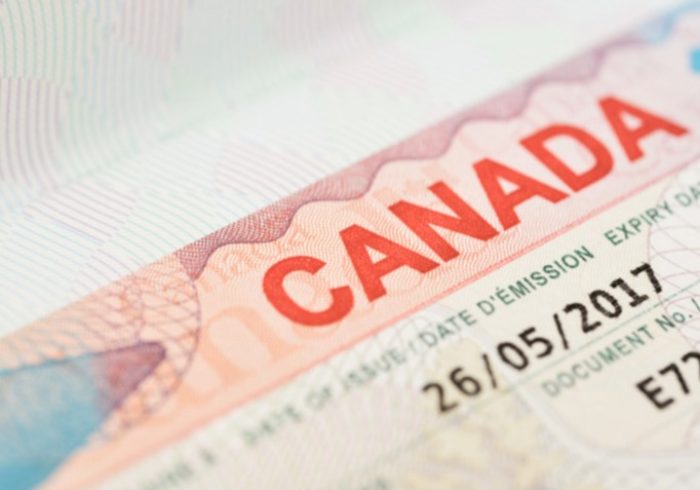Immigration Law
Visa
To guarantee a smooth and successful application process, people applying for visas should be aware of the legal concerns involved and think about consulting with an immigration lawyer.
To prevent any unfavourable outcomes, obtaining a visa can include a number of legal concerns that should be properly studied.
-
Typical legal issues
-
How can a lawyer assist with a visa application?
Typical legal issues
The following are some typical legal issues that arise when applying for a visa:
Eligibility: Individuals must fulfil specific eligibility conditions, which change according on the type of visa they are asking for, in order to acquire a visa. An immigration lawyer can examine the prerequisites and decide whether a person is eligible for a specific visa.
Applying procedure: A difficult process that involves filling out numerous forms and submitting supporting evidence is applying for a visa. The application may be rejected if it is lacking information or includes errors, and payment may not be returned.
Visa refusal: For a variety of reasons, such as ineligibility, criminal history, prior visa violations, or other factors, a visa application may be rejected. An immigration solicitor can offer guidance on the appropriate line of action to take in order to resolve any potential reasons for denial.
Delays in processing: Visa applications may face processing delays, which can be annoying and may result in missing a deadline or an opportunity. An immigration solicitor can assist with follow-up with the visa authorities to ensure prompt processing and to obtain updates on the application’s status.
Security checks:Applicants may be required to go through security checks, which may include fingerprints, background checks, and interviews, depending on the type of visa they are applying for. An immigration solicitor can represent clients in any associated legal proceedings and assist applicants in getting ready for these checks.
Expense of obtaining a visa:Due to fees and legal charges, applying for a visa might be costly. An immigration attorney can assist candidates in understanding the fees involved in the visa application process and in locating any potential fee waivers or payment options.
The acceptance or denial of visa applications: There are requirements that must be followed in order to apply for a visa, and the visa application must be completed accurately and honestly. The application may be denied if there are any inconsistencies or problems with it. Furthermore, certain nations could have more stringent restrictions for particular visa types, such work visas or student visas.
Visa extensions:A person could need to seek for a visa extension if they need to prolong their time in the nation. Depending on the country and the type of visa, there may be differences in the procedure and conditions for visa extensions.
Maintaining compliance with local laws and ordinances while on a visa:Respecting local rules and laws is crucial while using a visa to enter a country. The visa may be revoked in addition to having severe legal repercussions if any rules or regulations are broken.
Changes in visa status resulting from modifications in a person’s personal situation or employment status: Changes in personal circumstances, such as getting married or divorced, or changes in employment status, such as being laid off or changing jobs, can need a change in visa status. Failure to correctly update visa status can lead to legal issues.
Immigration breaches brought on by overstaying a visa and its effects:
Serious repercussions can result from exceeding a visa’s validity, including deportation, immigration offences, and being prohibited from returning to a nation.
Removal and deportation processes:
A person may be subject to deportation and removal proceedings if it is determined that they have broken the visa rules or if they are suspected of committing a crime. These legal procedures might be difficult, so an experienced immigration lawyer is necessary.
How can a lawyer assist with a visa application?
Throughout the visa application process, an immigration solicitor may offer invaluable direction and counsel, helping people achieve their objectives while abiding by local rules and regulations.
Choose a visa type that best suits your needs: An immigration lawyer can assist people in understanding their alternatives. Also, they can assist in determining eligibility and identifying any potential problems that might need to be resolved.
Visa applications: A lawyer can assist in preparing visa applications and verify that they are correctly filled out and contain all required papers.
Addressing legal concerns and difficulties: An immigration lawyer can offer advice on the best course of action and act as representation in court if there are any legal problems or challenges with a visa application or process, such as a visa rejection or revocation.
Evaluating and negotiating employment contracts: If the visa application procedure entails employment, a lawyer can assess the terms and circumstances of the employment contract and negotiate them to make sure they are reasonable and lawful.
Giving compliance advice: An immigration lawyer can help with any renewal or extension requests as well as advice on how to stay in compliance with local rules and regulations while on a visa.
Find Best Lawyers and Legal help in
Latest Articles
Tell us more about your problem.
Please give a brief description about what it is you need to talk to our lawyers about ?
Frequently Asked Questions
How can online legal platforms assist immigrants in finding potential visa sponsors?
Online legal platforms can assist immigrants in finding potential visa sponsors by providing access to databases of employers who are willing to sponsor visas for foreign workers. These platforms may also provide tools and resources to help applicants prepare their applications and connect with potential sponsors.
The legal requirements and criteria for visa sponsorship depend on the type of visa being sought. For example, the requirements for an employment-based visa may differ from those for a family-based visa or a student visa. Generally, however, visa sponsorship requires a U.S. employer or other qualified sponsor to file a petition with the appropriate government agency, such as USCIS.
To qualify for visa sponsorship, the applicant must typically meet certain criteria, such as having a job offer from a qualifying employer or a qualifying relationship with a U.S. citizen or permanent resident. The applicant must also meet certain eligibility requirements, such as demonstrating that they have the necessary skills and qualifications for the job or meeting the income requirements for sponsoring a family member.
Online legal platforms can provide guidance on meeting these requirements by offering tools and resources to help applicants understand the criteria for different types of visas, and by connecting applicants with qualified immigration attorneys who can advise them on their options and help them prepare their applications. These platforms may also provide access to online forums and communities where applicants can share information and advice with others who are going through similar processes.
What are the legal requirements and criteria for visa sponsorship, and how can online legal platforms provide guidance on meeting these requirements?
The legal requirements and criteria for visa sponsorship depend on the type of visa being sought. Here are some general guidelines:
Employment-based visas: To be sponsored for an employment-based visa, the applicant must typically have a job offer from a U.S. employer who is willing to sponsor their visa. The employer must demonstrate that they have made efforts to recruit U.S. workers for the position but were unable to find suitable candidates. The applicant must also meet certain eligibility requirements, such as having the necessary skills and qualifications for the job.
Family-based visas: To be sponsored for a family-based visa, the applicant must typically have a qualifying relationship with a U.S. citizen or permanent resident. This may include spouses, parents, children, and siblings. The U.S. citizen or permanent resident must file a petition with USCIS on behalf of the applicant and must demonstrate that the relationship qualifies under the relevant immigration law.
Student visas: To obtain a student visa, the applicant must typically be accepted into a qualifying educational program in the United States and provide evidence of sufficient financial support to cover tuition and living expenses.
Online legal platforms can provide guidance on meeting these requirements by offering tools and resources to help applicants understand the criteria for different types of visas, and by connecting applicants with qualified immigration attorneys who can advise them on their options and help them prepare their applications. These platforms may also provide access to online forums and communities where applicants can share information
What are some common visa sponsorship issues, and how can online legal platforms help resolve them?
There are several common issues that individuals may encounter when seeking visa sponsorship, and online legal platforms can be a useful resource for addressing these issues. Here are some common examples:
Lack of job offers: One of the most common challenges faced by individuals seeking employment-based visas is finding employers who are willing to sponsor their visas. Online legal platforms can provide access to databases of employers who are interested in hiring foreign workers, and may also offer tools and resources to help applicants create compelling resumes and cover letters.
Eligibility issues: Applicants for visas must meet certain eligibility requirements, such as having the necessary skills and qualifications for the job, or meeting the income requirements for sponsoring a family member. Online legal platforms can provide guidance on the specific eligibility requirements for different types of visas, and may offer resources to help applicants prepare their applications and supporting documents.
Delays and backlogs: The visa application process can be time-consuming, and there may be delays or backlogs at various stages of the process. Online legal platforms can provide updates on processing times and offer advice on how to navigate the process efficiently.
Denials and appeals: In some cases, visa applications may be denied, and applicants may need to file appeals. Online legal platforms can provide guidance on the appeals process and offer resources to help applicants strengthen their cases.
Changing immigration policies: Immigration policies can change frequently, which can impact the visa application process. Online legal platforms can provide updates on changes in immigration policy, and offer guidance on how to adapt to new rules and requirements.
Overall, online legal platforms can be a valuable resource for individuals seeking visa sponsorship, providing access to critical information, resources, and support to help them navigate the complex and sometimes challenging process of obtaining a visa and achieving their goals in the United States.
How can online legal platforms assist immigrants in relocating to a new country on a visa?
Online legal platforms can assist immigrants in relocating to a new country on a visa by providing a range of services and resources that help them navigate the legal and administrative requirements for living and working in a new country. Here are some ways online legal platforms can provide assistance:
Visa application assistance: Online legal platforms can offer guidance on the different types of visas available, as well as the eligibility requirements and the application process for each type of visa. This can include assistance with completing application forms, gathering supporting documentation, and preparing for interviews or other assessments.
Legal advice and representation: Immigrants may encounter legal issues related to their status or their ability to live and work in a new country. Online legal platforms can connect individuals with qualified immigration attorneys who can provide legal advice and representation on a wide range of issues, from applying for a visa to dealing with employment disputes or other legal challenges.
Cultural and language support: Moving to a new country can be challenging, particularly when faced with unfamiliar customs, languages, and social norms. Online legal platforms can offer resources and support to help immigrants adjust to their new environment, including language courses, cultural orientation programs, and community forums where they can connect with others who have gone through similar experiences.
What are the legal requirements and criteria for visa relocation, and how can online legal platforms provide guidance on meeting these requirements?
The legal requirements and criteria for visa relocation depend on the country and type of visa being sought. Here are some general guidelines:
- Eligibility: To be eligible for a visa, an individual must typically meet certain criteria, such as having a job offer, being a student, or having a qualifying relationship with a citizen or permanent resident of the destination country.
- Application process: The application process for a visa typically involves completing forms, providing supporting documentation, and often attending interviews or other assessments.
- Immigration laws and policies: Immigration laws and policies can vary widely between countries and may also change over time. It’s important to stay up-to-date on the latest laws and regulations related to visa relocation in the destination country.
Online legal platforms can provide guidance on meeting these requirements by offering tools and resources to help applicants understand the eligibility criteria and application process for different types of visas. These platforms may also connect applicants with qualified immigration attorneys who can advise them on their options and help them prepare their applications. Additionally, online legal platforms may offer resources and support to help applicants adjust to their new environment, including language courses, cultural orientation programs, and community forums where they can connect with others who have gone through similar experiences.
Overall, obtaining a visa for relocation can be a complex and challenging process, and it is important to seek legal advice from qualified attorneys who are familiar with the laws and procedures of the destination country. Online legal platforms can be a helpful resource in this regard, providing valuable information and guidance to immigrants seeking to start a new life in a foreign country.
What are some common visa relocation issues, and how can online legal platforms help resolve them?
There are several common issues that individuals may encounter when seeking to relocate to a new country on a visa, and online legal platforms can be a useful resource for addressing these issues. Here are some common examples:
- Eligibility requirements: To obtain a visa for relocation, the individual must typically meet certain eligibility requirements, such as having a job offer or meeting income requirements. Online legal platforms can provide guidance on the specific eligibility requirements for different types of visas, and may offer resources to help applicants prepare their applications and supporting documents.
- Delays and backlogs: The visa application process can be time-consuming, and there may be delays or backlogs at various stages of the process. Online legal platforms can provide updates on processing times and offer advice on how to navigate the process efficiently.
- Visa denials and appeals: In some cases, visa applications may be denied, and applicants may need to file appeals. Online legal platforms can provide guidance on the appeals process and offer resources to help applicants strengthen their cases.
- Cultural and language barriers: Moving to a new country can be challenging, particularly when faced with unfamiliar customs, languages, and social norms. Online legal platforms can offer resources and support to help immigrants adjust to their new environment, including language courses, cultural orientation programs, and community forums where they can connect with others who have gone through similar experiences.
- Employment and housing issues: Finding suitable employment and housing can be challenging for immigrants, particularly if they are unfamiliar with the local job market or rental market. Online legal platforms can provide access to job listings, career counseling services, and resources on housing options and rental agreements.
Overall, online legal platforms can be a valuable resource for individuals seeking to relocate to a new country on a visa, providing access to critical information, resources, and support to help them navigate the complex and sometimes challenging process of starting a new life in a foreign land.















